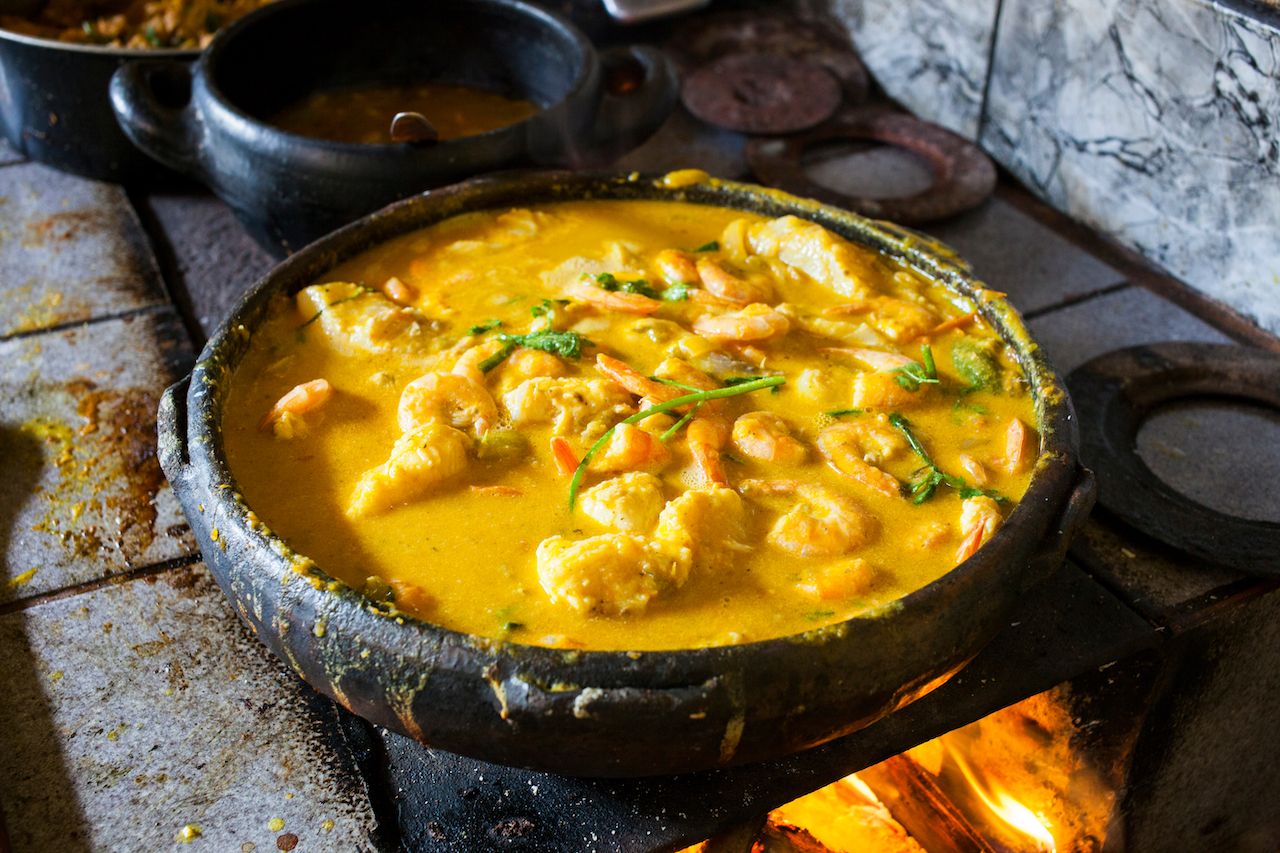Culinary Traditions Of Salvador: A Flavorful Journey
Share

Salvador, the capital of Bahia in Brazil, is a vibrant city known for its rich culture, colorful history, and, most importantly, its culinary traditions. The food here is a delightful blend of African, Indigenous, and Portuguese influences, creating a unique gastronomic experience that reflects the city's diverse heritage.
The Heart of Bahian Cuisine
Bahian cuisine is characterized by its bold flavors, vibrant colors, and the use of fresh, local ingredients. The region's proximity to the Atlantic Ocean means seafood plays a significant role in many dishes. Ingredients such as coconut milk, dendê oil (palm oil), and a variety of spices are staples in the local diet.

Key Ingredients
- Dendê Oil: This bright orange oil is extracted from the fruit of the African oil palm and is a defining ingredient in many Bahian dishes.
- Coconut Milk: Creamy and rich, coconut milk is used in soups, stews, and desserts, adding a tropical flavor to the cuisine.
- Seafood: Fresh fish, shrimp, and crab are commonly featured, often cooked in savory stews or grilled.
- Spices and Herbs: A blend of spices, including garlic, ginger, and cilantro, enhances the flavors of Bahian dishes.
Signature Dishes of Salvador
Moqueca

Moqueca is perhaps the most famous dish from Salvador. This traditional fish stew is made with coconut milk, dendê oil, tomatoes, onions, and peppers. There are two main variations: Moqueca Baiana, which uses dendê oil, and Moqueca Capixaba, which is lighter and does not include dendê. Each version offers a unique taste of Bahia's culinary heritage.
Acarajé
Acarajé is a popular street food made from black-eyed peas that are formed into balls and deep-fried in dendê oil. The crispy exterior gives way to a soft, flavorful interior, often filled with shrimp, vatapá (a spicy paste made from bread, shrimp, and coconut milk), and a spicy pepper sauce. This dish is not only delicious but also holds cultural significance, often associated with the Afro-Brazilian religion of Candomblé.
Vatapá
Vatapá is a rich and creamy dish made from bread, shrimp, coconut milk, and spices. It is typically served as a filling for acarajé or as a side dish. The combination of flavors and textures makes vatapá a must-try for anyone visiting Salvador.
Bobó de Camarão
Bobó de Camarão is a shrimp stew made with cassava (manioc) and coconut milk. The dish is thick and creamy, with a delightful blend of spices that create a comforting meal. It is often served with rice and is a favorite among locals and visitors alike.
The Influence of African Culture
The African influence on Salvador's culinary traditions is profound. Many of the recipes and cooking techniques have been passed down through generations, preserving the flavors and traditions of the African diaspora. Festivals and celebrations often feature traditional dishes, showcasing the importance of food in cultural identity.
Festivals Celebrating Food
Salvador hosts numerous food festivals throughout the year, celebrating its culinary heritage. The Festival of Acarajé, for example, highlights this iconic dish, bringing together chefs and food lovers to enjoy the best acarajé in the city. These festivals are a great opportunity to sample a variety of dishes and experience the vibrant culture of Salvador.
Best Time to Visit Salvador
The best time to visit Salvador is during the dry season, which runs from November to March. During this period, the weather is warm and sunny, perfect for enjoying outdoor activities and exploring the city's culinary scene. However, if you want to experience the famous Carnival, plan your trip for February or March, when the city comes alive with music, dance, and, of course, food.
Weather Information
- November to March: Warm and dry, with temperatures averaging around 28°C (82°F).
- April to October: Rainy season, with cooler temperatures averaging around 25°C (77°F).
Where to Eat in Salvador
Salvador is home to a plethora of restaurants and street vendors offering authentic Bahian cuisine. Here are some top recommendations:
- Restaurante do Senac: Located in the Pelourinho district, this restaurant offers a buffet of traditional Bahian dishes, allowing you to sample a variety of flavors.
- Casa de Tereza: A cozy restaurant known for its innovative take on traditional dishes, Casa de Tereza is a favorite among locals and tourists alike.
- Acarajé da Dinha: This street vendor is famous for her acarajé, often regarded as the best in Salvador. Be prepared to wait in line, as her delicious creations are worth it!
Culinary Tours in Salvador
For those looking to immerse themselves in Salvador's culinary traditions, consider joining a food tour. These tours often include visits to local markets, cooking classes, and tastings of traditional dishes. It's a fantastic way to learn about the ingredients and techniques that define Bahian cuisine while enjoying the vibrant atmosphere of the city.
Conclusion
Salvador's culinary traditions are a reflection of its rich history and diverse culture. From the vibrant flavors of moqueca to the street-side delights of acarajé, every dish tells a story. Whether you're a food enthusiast or simply looking to savor new experiences, Salvador promises a culinary adventure that will leave a lasting impression.
Don't miss the chance to explore this gastronomic paradise. Book your flights and accommodations now to experience the flavors of Salvador firsthand!



